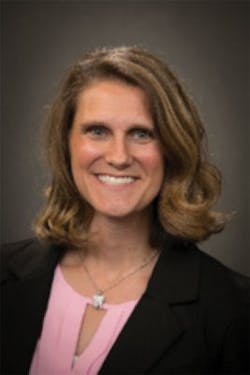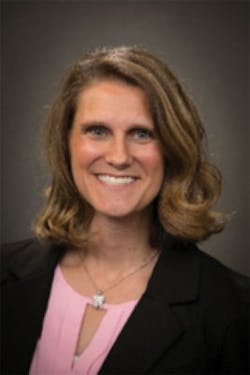From a hygienist’s perspective
What happens when a DSO takes over the practice where I work?
Ashley McCauley, MS, RDH
Dental support organizations (DSOs) have grown substantially in the past few years, and the speed at which they are appearing shows no sign of slowing down. As a hygienist who swore I would never work in “corporate dentistry,” I’m here to tell you that there are many misconceptions about DSOs and not enough information about the advantages they can provide.
There can be a lot of fear of change in the workplace, but it is how people respond to that change that will determine the outcome. What really happens when your dentist joins a DSO? What will happen to the patients you’ve been treating for so long? Will the office turn into a prophy mill?
What is a DSO?
Dental support organizations were created to do just that: support dentists. DSOs allow dentists to practice dentistry without worrying about the nonclinical and business sides. One of the biggest misconceptions about DSOs is that the company establishes the clinical standards and requirements in the office. In reality, it is quite the opposite. Team members are able to focus more on patient care since they do not have to deal with the pressures of HR, IT issues, insurance, and payroll.
There are many DSO models, but it is important to note that they are clinically led, meaning the dentist still makes the clinical decisions in the practice. The DSO helps to establish systems and protocols that align with the dentist’s overall clinical philosophy. The dentist is still able to have the autonomy of the practice and lead the team.
What is the impact on hygienists?
DSOs bring positive change into dental practices by implementing new technologies that improve patient experiences. They also establish protocols to enhance team collaboration. DSOs work with offices to ensure standards of care are being maintained through quality assurance, risk management, and compliance. Infection control protocols are established to ensure that safety is provided to team members and patients. Software and new technology training and implementation are provided to enable dental practices to reach their greatest potential.
Growth and development
When joining a DSO, you become part of something bigger. Not only do you have support within your dental practice, but you feel supported in your professional goals. Internal training is provided to elevate the skills we may not yet have mastered as hygienists. This can be anything from leadership development, team communication, and treatment presentation.
DSOs recognize the value and skill sets dental hygienists bring to the dental team. Because of this, support is given when individuals express interest in growing. Taking the opportunity to develop different skills allows for career growth. DSOs support many roles for hygienists, including dental hygiene trainers, regional managers, and even executive team roles.
Mentorship
The peer-to-peer camaraderie that takes place in a DSO is not always found in private practice. DSOs employ experts in all areas of business and dentistry to ensure support for all team members. This can be especially important as a hygienist when you have a case you want to discuss with someone, or want to ask for recommendations. DSOs offer mentorship programs to aid in the success of all team members.
When looking for career satisfaction, take the time to learn more about DSOs. If your employer recently partnered with a DSO, keep an open mind and embrace the changes that will ultimately grow your skill set and provide you with new opportunities. Lastly, if you’re employed in a DSO, challenge yourself to take every opportunity for personal and professional growth that comes your way. You may find that being a hygienist in a DSO is exactly what you were looking for.
Editor’s note:Be on the lookout for different perspectives on DSOs in upcoming issues. The topic of DSOs generates passionate responses, and we’d like to share different voices on how this new practice model is affecting dental hygienists.
Ashley McCauley, MS, RDH, is the director of clinical development for Tru Family Dental, a DSO located in Michigan and Illinois. She focuses on creating protocols, training, compliance, and leadership development. Her advanced degree in organizational leadership allows her to give the dental office practical solutions for growth and production, and her knowledge in change management helps her effectively create and sustain change and prevent complacency. Contact her at [email protected].

